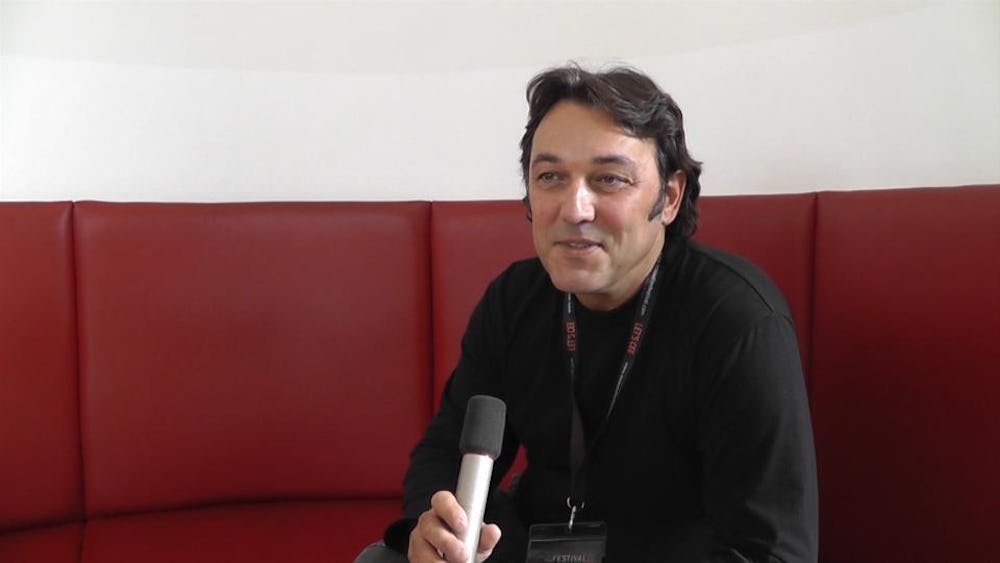
Transkript
Drei Ratschläge an Dein 14jähriges Ich!
I will give advice to my child to watch the films. What she could do is, she's choice. I cannot press my ambition to her. She has to decide from the million of jobs, she has to decide what she wants to be.
Was steht auf Deiner Visitenkarte?
My name is Brand Ferro and I'm originally cinematographer.
Was ist das coolste an Deinem Job?
It's different, really different. When I do fiction film, I'm satisfied when everything is on a place and the frame is beautiful. When the actors are good, the light is really good, all the aesthetic this is the most important photo fiction but in a documentary, I am really happy when I catch the right moments from the right position of the camera.
Welche Einschränkungen bringt Dein Job mit sich?
I will talk about documentary films. When we get something from the character because the characters in the documentary film are not actors, when we get something which is not ethical correct, this is disappointment and then we usually try to clean it into the editing process all these stuff and to polish the final version and this is the problem with the documentary. How far can you go with your characters?
Worum geht es in Deinem Job?
In the last ten years, because I'm concentrate on a creative documentary, I'm running to the people and I'm running to the stories. Actually cinematography has to be part of the treatment or on the script. You have to follow the script and you have to make a camera which is really into the point of the script and the character into the script or the treatment in documentary films. And in a documentary light is aesthetic part of cinematography is not much important but more important is to have a clear and camera which is into the points with the characters. If the script is populistic, you have to make a populistic photography. If the script is really intimate story, you have to make an intimate photography which means that you have to give life to the photography and you have to make really good camera which is correspondence with the treatment and with the story. This is the most important and here is the most important a worth kind of equipment. You can choose to be really free and to move really quick and to follow the story. I'm talking about the creative documentaries. We start the day with the creative part. We're talking a lot about the shooting day, we're talking about the characters we're talking about a world we have to do this day. Actually usually we did after the shooting session by night and when the day start we repeat the same stuff, what we have to do this day and every a lucky way make the schedule is really a good day. Sometimes we have to prolong because the things not learning especially in a creative documentary you cannot make while you plan and sometimes you lose the day. This is the part of the life here.
Wie sieht Dein Werdegang aus?
I'm born in Skopje, Macedonia in '68. I finished primary and secondary school in Skopje then I studied in Academy and I was probably working on the picture films, on the commercials and all kinds of scene cinematography stuff. When I start as a scene armature, I do all the jobs in the film editing, directing, cinematography, audio but I decided to be a cinematographer because I was sure that I want to be outside and communicate with the people and make frames and photos. I started with scene photography in `89 I think. I worked also as assistant from `86 and then in early 90s I started doing myself.
Ginge es auch ohne Deinem Werdegang?
To be a scene photographer first of all you have to love it, to love photography and then you have to be really clean and logistical person. To be a scene photographer the both things are important on a set you can learn a lot of stuff from the good scene photographers but you can also learn a lot of stuff in Academy it's helpful also.
